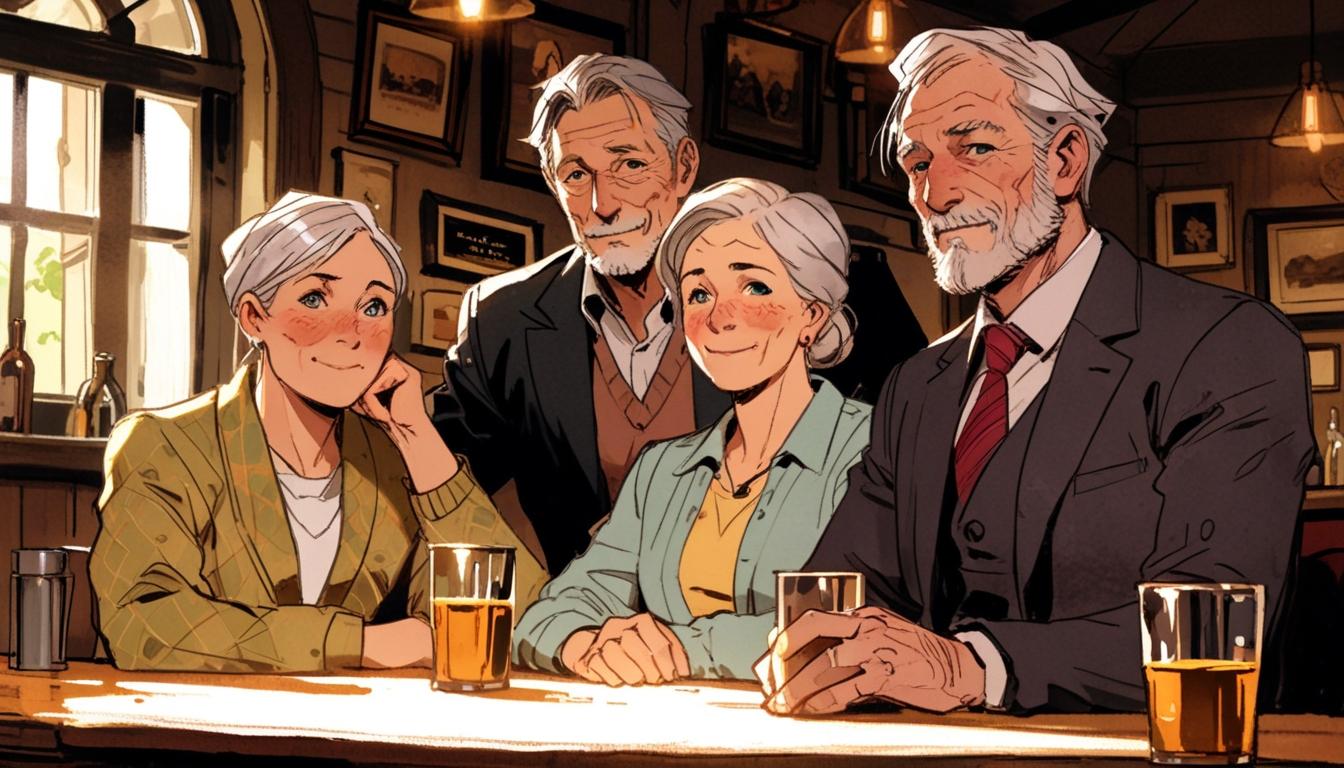In a highly publicised legal case, the McGirr family has been awarded £75,000 after being wrongly accused of leaving the Horse and Jockey pub in the Peak District without paying their bill. This incident, which spiralled into a significant reputational crisis for the family, began with a sumptuous meal enjoyed by Peter and Ann McGirr and their children, Peter Jr and Carol. Despite having fully paid their £150 bill—which the pub staff had failed to record—the family became victims of a defamatory social media post alleging they had dined and dashed.
The allegations not only tarnished the McGirr family's reputation but also led to a social media onslaught, as users rallied against what they perceived to be blatant dishonesty. This incident highlights a troubling trend in the UK, where the rise of ‘dine and dash’ incidents has been met with increasing concern from restaurant owners. Reports suggest that nearly one in twenty individuals have walked out on their bills, contributing to a culture of distrust that many restaurateurs now face. While the McGirr family maintained their innocence, cases involving others, such as the McDonaghs, who pleaded guilty to similar offences, illustrate the broader implications of dine-and-dash behaviours on public perception and business integrity.
The fallout from this specific case drew significant media attention, resulting in a swift acknowledgment of wrongdoing by the pub's management. Landlord John Watson faced financial repercussions that could total around £140,000, including damages and legal costs. Despite efforts to settle the matter amicably—such as offering the McGirrs a complimentary meal and stay at his establishment—Watson’s overtures were seen as insufficient to repair the extensive damage to the McGirr's reputation. A source close to the family noted, “Given their wealth and excellent reputation, they were not the kind to accept such offers lightly.”
Peter Girvan, the family's barrister, articulated the gravity of the situation in court, emphasising the severe damage to the McGirr family's character due to the unfounded accusations. The pub's defence hinged upon a clerical mistake made by a member of staff, who failed to log a payment made by the McGirrs on the till. This "honest mistake" led to distress not only for the accused family but also resulted in a dismissal of the staff member responsible.
Following the ruling, Carol McGirr expressed relief, stating, “Thank god it’s all over and our names are cleared.” Her sentiment reflects a broader sense of vindication that families in similar situations seek when falsely accused. While many may understand the pub’s predicament, particularly in light of the burgeoning dine-and-dash scenario across the UK, the crucial distinction remains one of intent. The McGirr family's financial security—stemming from their successful engineering business, which reportedly has cash reserves of £1.3 million—contrasts sharply with the actions taken by individuals like the McDonaghs, whose fraudulent behaviours were driven by malice rather than mere oversight.
Peter McGirr senior, one of those falsely accused, is renowned in his community not just for his wealth but also for being a self-made success story, having founded a company that manufactures block-making machines for global markets. This dual identity—both a prosperous businessman and a respected community member—exacerbated the impact of the allegations on the family, prompting them to pursue legal action to restore their standing.
The McGirr case illuminates the potentially devastating effects of public accusations in the age of social media, where reputations can be swiftly tarnished without due process. As the legal landscape continues to evolve, families like the McGirrs underscore the importance of safeguarding one's name against unfounded claims, even when financial necessity might suggest otherwise.
Reference Map
- Paragraph 1: [1], [2]
- Paragraph 2: [5]
- Paragraph 3: [1]
- Paragraph 4: [1]
- Paragraph 5: [1]
- Paragraph 6: [1], [4]
- Paragraph 7: [6], [7]
- Paragraph 8: [1], [2]
Source: Noah Wire Services
